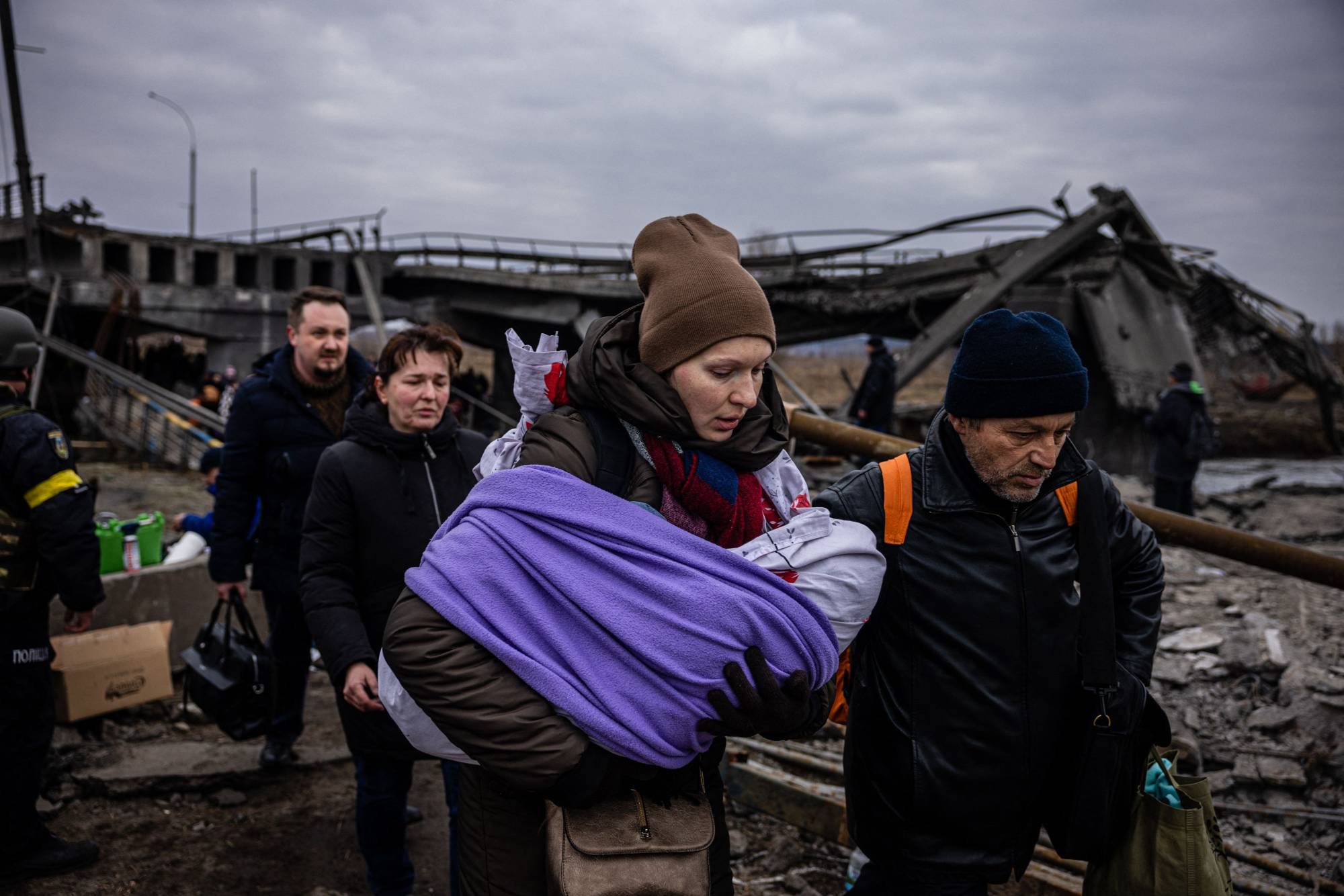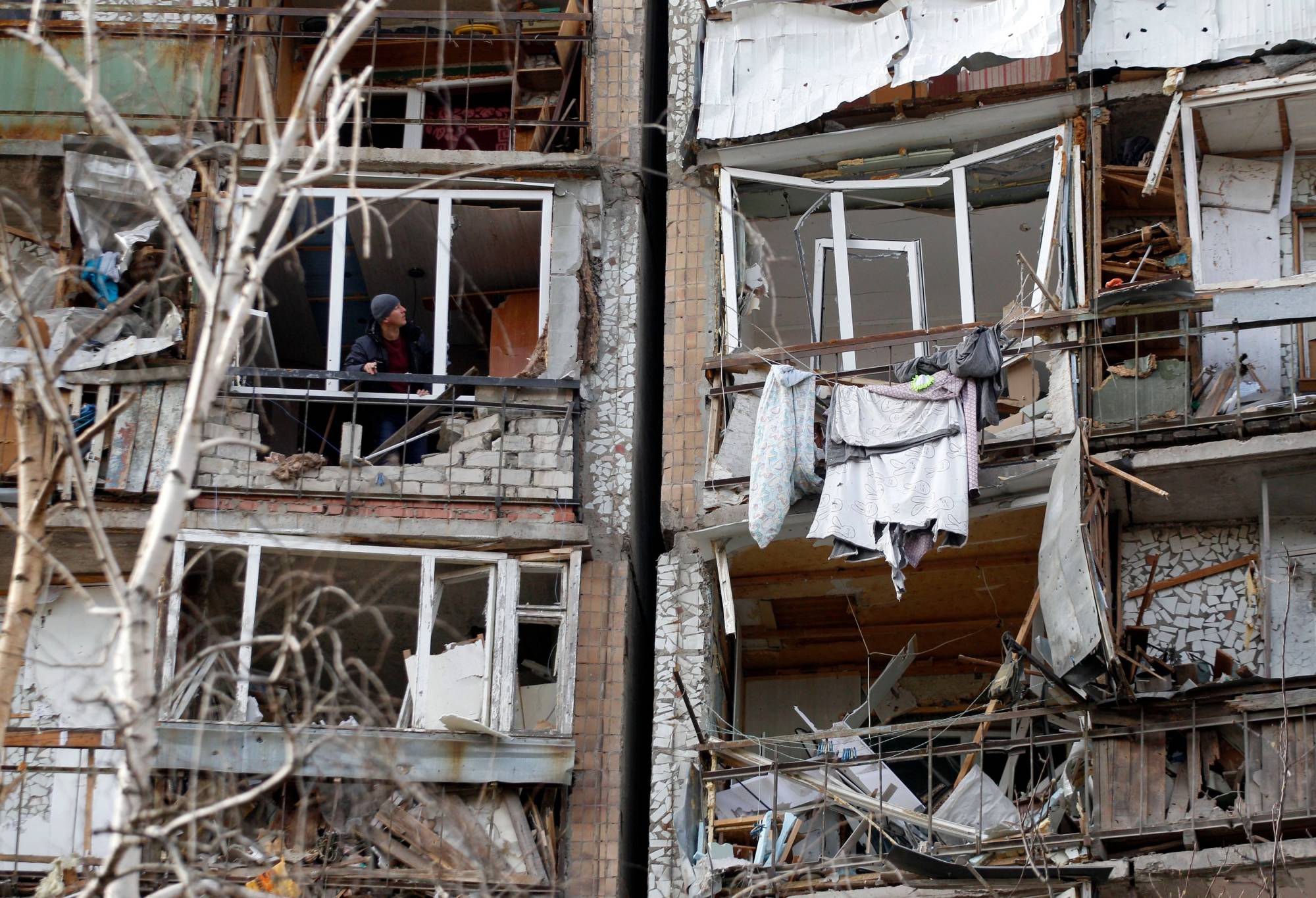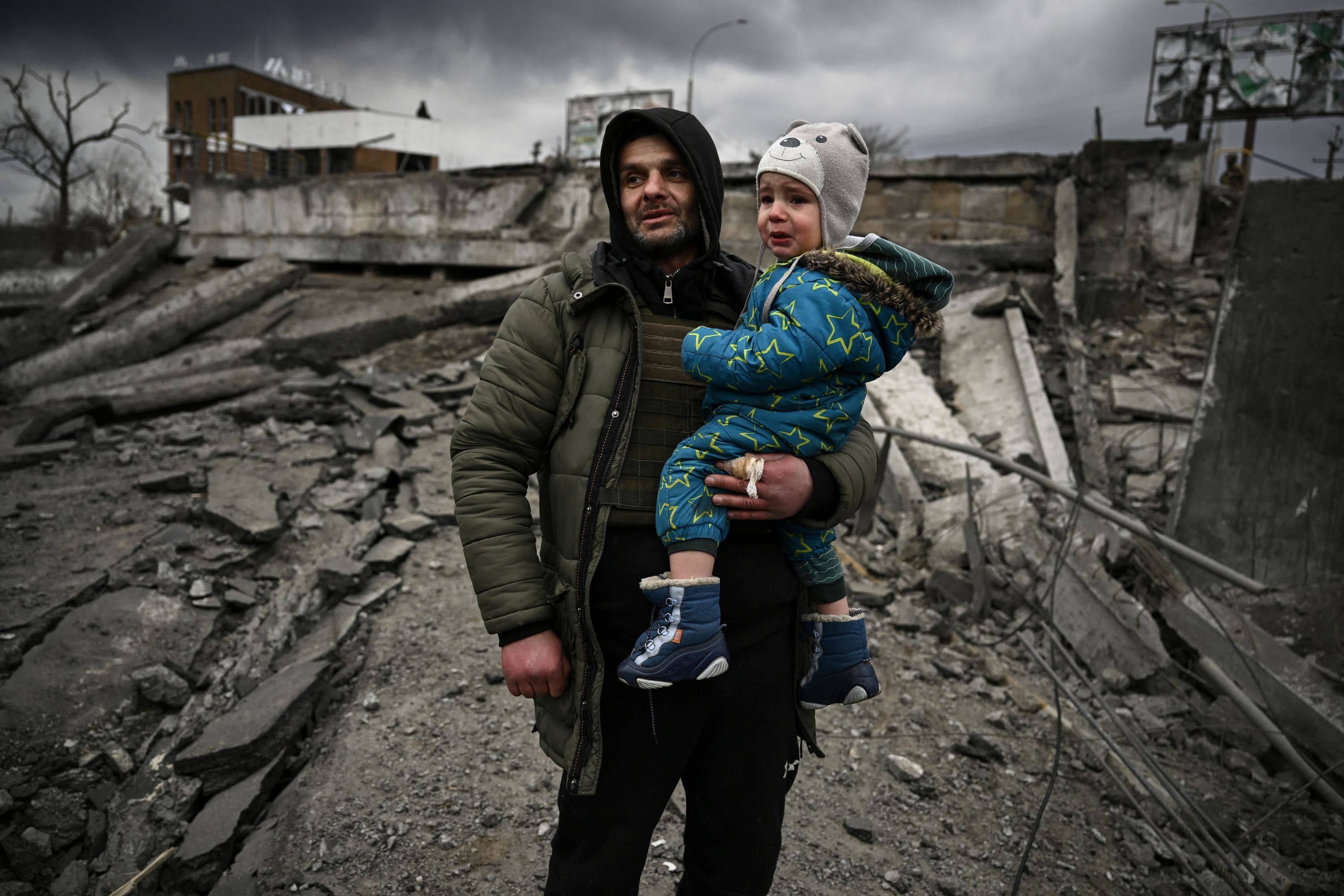LVIV/IRPIN, Ukraine – Ukrainian officials said a Russian airstrike hit a bread factory in northern Ukraine on Monday, killing at least 13 civilians, while talks between Kyiv and Moscow made little progress toward easing the conflict.
The strike on the factory in Makariv, just west of Kyiv, took place as the number of refugees fleeing across borders from the Russian assault on Ukraine passed 1.7 million, according to United Nations figures.
Russian forces pressed on with their seiges and bombing of Ukrainian cities on the 11th day of the war. In the encircled southern port city of Mariupol, hundreds of thousands of people remained trapped without food and water under regular bombardments.
“They’re bombing the life out of everything that is moving,” Ukranian President Volodymyr Zelenskyy said.
Reuters was not able to verify the reported bakery attack but local emergency services said the bodies of at least 13 civilians were recovered from rubble after it was hit.
Five people were rescued of the 30 believed to have been there at the time. Russia denies targeting civilians.
Zelenskyy, speaking on a zoom call with a Jewish group in the United States, said, “The bakery was eliminated. And this is happening in different cities.”
In the eastern city of Kharkiv, police said a further 10 people had been killed over the past day, taking the total death toll there from Russian bombardment to 143 since the start of the invasion. It was not possible to verify the toll.
After the third attempt to ease the bloodshed at talks in Belarus, a Ukrainian negotiator said that although small progress on agreeing logistics for the evacuation of civilians had been made, things remained largely unchanged.
“As of now, there are no results that significantly improve the situation,” Mykhailo Podolyak said in a video statement, while Russian negotiator Vladimir Medinsky, told journalists the talks were “not easy.”
“We hope that from tomorrow these corridors will finally work,” he said.
A fourth round of talks will take place very soon, Russian negotiator Leonid Slutsky told Russian state television.
Russia had offered Ukrainians escape routes to Russia and Belarus, its close ally, early on Monday after weekend evacuation cease-fire attempts failed. A spokesperson for Zelenskyy said the Russian proposal was “completely immoral.”
The day before, journalists had witnessed people trying to flee the town of Irpin near Kyiv getting caught in Russian shelling.



On Monday, people picked their way over the twisted ruins of a large bridge in Irpin, with river water rushing just beneath them.
“It’s like a disaster. The city is almost ruined and the district where I’m living (there are) no houses which were not bombed,” a young woman leaving with her children said.
Russia calls the campaign it launched on Feb. 24 a “special military operation” to disarm Ukraine and remove leaders it describes as neo-Nazis. Ukraine and its Western allies call this a transparent pretext for an invasion to conquer a nation of 44 million people.
Kremlin spokesman Dmitry Peskov said Moscow would halt operations if Ukraine ceased fighting, amended its constitution to declare neutrality, and recognized Russia’s annexation of Crimea and the independence of regions held by Russian-backed separatists.
Western nations have placed heavy sanctions on Moscow to isolate it from global commerce and are now considering banning Russian oil imports. Oil prices spiked to their highest levels since 2008 amid the prospect of less supply from Russia, the world’s biggest exporter of oil and gas.
International businesses and sports bodies have suspended ties, and wider economic disruption is likely as Russia and Ukraine are both among the world’s main exporters of food and industrial metals.
Prices of nickel, which is used to make stainless steel and batteries for electric vehicles, surged about 60% on Monday and have now nearly doubled since Russia invaded Ukraine on Feb. 24.



The general staff of Ukraine’s armed forces said Russian forces were “beginning to accumulate resources for the storming of Kyiv,” a city of more than 3 million, after days of slow progress in their main advance south from Belarus.
In Mariupol, Deputy Mayor Sergei Orlov said there had been continuous air raids overnight.
Orlov told CNN authorities were ready to evacuate 6,000 people on Saturday but the Russians had bombed 29 big municipal buses that were to transport them. Moscow has accused the Ukrainians of blocking the planned evacuations.
The U.S. ambassador to the OSCE, Michael Carpenter, told a meeting of its 57 participating states that Russia had bombed agreed evacuation routes out of Volnovakha and Mariupol just as civilians were fleeing.
“It is pure evil,” he said.
Ukraine said on Monday its forces had retaken control of the town of Chuhuiv in the northeast after heavy fighting and of the strategic Mykolayiv airport in the south, which the regional governor said was under tank fire. Neither claim could immediately be verified.
In a humanitarian update the United Nations described one psychiatric hospital 60 kilometers from Kyiv running out of water and medicine with 670 people trapped inside, including bedridden patients with severe needs.
The World Health Organization said at least nine people had been confirmed killed in 16 attacks on health care facilities since the start of the war.



A senior U.S. defense official said Putin had now deployed into Ukraine nearly 100% of the more than 150,000 forces that he had pre-staged outside the country before the invasion.
An analyst with Britain’s Royal United Services Institute, Ed Arnold, said Russia would need to try to consolidate the gains it has already made and pause to mobilize more forces unless the pace of its assault picked up.
Moscow has acknowledged nearly 500 deaths among its soldiers, but Western countries say the true number is much higher and Ukraine says it is many thousands.
Death tolls cannot be verified, but footage filmed across Ukraine shows burnt-out wreckage of Russian tanks and armor, and parts of Ukrainian cities reduced to rubble by Russian strikes.
In a time of both misinformation and too much information, quality journalism is more crucial than ever.
By subscribing, you can help us get the story right.
SUBSCRIBE NOW


